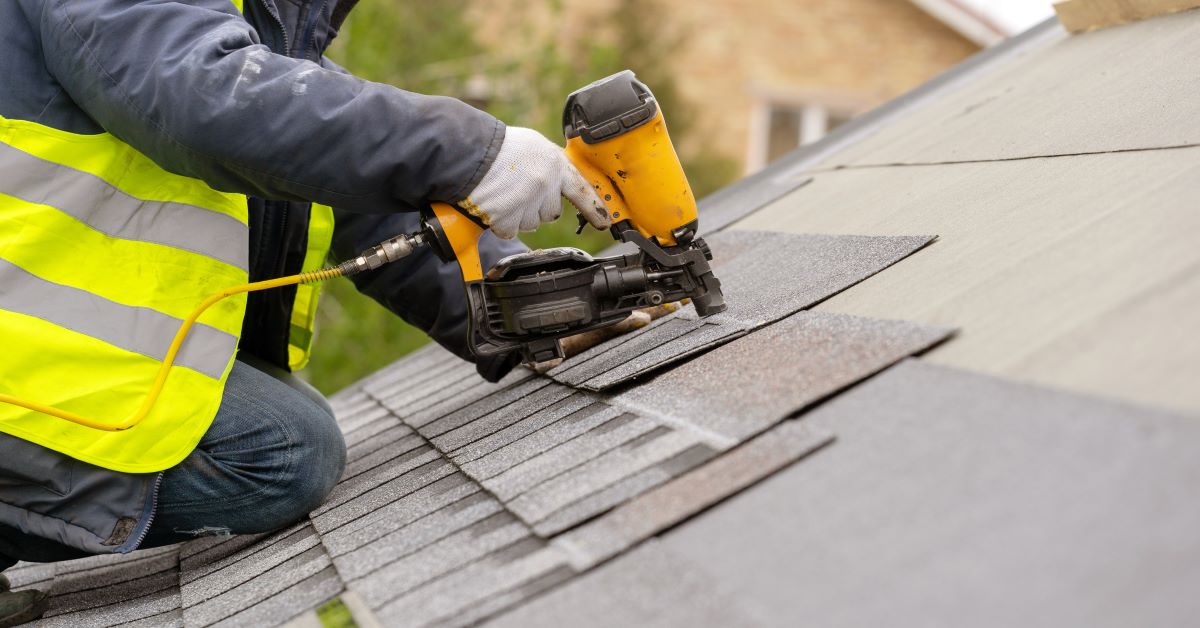Currently, there are so many types of roofing materials, so it can be very challenging to make a decision. With that in mind, choosing the most suitable roofing material requires weighing appearance, longevity, cost, and structural issues. It’s very important to consider the climate of the area you live in and do adequate research on what material is best suited for that particular environment. Doing your own research and speaking with a professional roofing company will help guarantee that you have a roof that will last you a very long time. Here are just a few options that you can consider, and some of their pros and cons:
Asphalt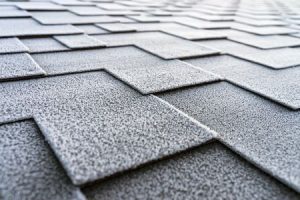
Asphalt shingles also referred to as composition shingles, are one of the most popular types of roofing material in the US. This type of shingle is made of a mixture of asphalt, fiberglass, and other strengthening materials.
Pros:
- They’re the most affordable roofing material in today’s market while also quick and easy to install and when installed correctly and properly maintained, can last for up to 30 years.
- They’re Affordable: Probably the biggest reason why asphalt roofing shingles are so popular is because they are the most affordable roofing option.
- Effective: While not as durable and long-lasting as other roofing materials asphalt shingles provide adequate protection.
Cons:
- Low Durability: Due to the way they are designed, asphalt shingles are not the most durable option. Due to the asphalt shingles being pretty lightweight, they can sometimes be susceptible to wind damage. Strong winds have been known to lift or tear these shingles off pretty easily.
Composites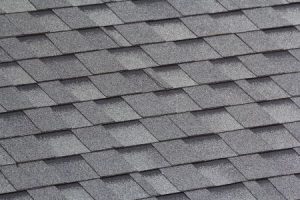
While not as durable as some other roofing materials, a composition shingle roof will provide good protection with a great look at substantial savings from other roofing systems. This is one of the most popular roofing materials used on homes today.
Pros:
- Composite shingles are made up of synthetic materials, which allows them to be available in many different colors and textures.
- This roofing material type also has an extremely high lifespan of approximately 50 years!
- Not only do they have a long lifespan, but most composite shingles contain a high percentage of recycled material, meaning when they have reached their lifespan, they can be recycled once again.
- They are also resistant to mildew, algae, and stains from leaves and other debris, requiring minimal maintenance.
Cons:
- Although Composite shingles have a lot of pros, they are more expensive than asphalt and wood shingles.
- They also cannot be installed in a way that will increase their wind resistance above 115 miles per hour, which is a crucial aspect to consider depending on the area and climate you live in.
Concrete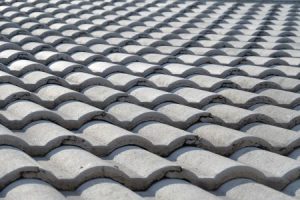
Concrete roofing is made of sand, cement, water, and iron oxide (pigment) mixed, molded, and heated together.
Pros:
- Concrete tiles serve as a water and weather-resistant layer over your roof, making it an excellent option for more extreme climates.
- Concrete tiles are great because they can be formed into any shape. They can mimic the textures of wood shake, clay, slate, and stone.
- Concrete tiles have a strong resistance against wind and heavy snow loads. They are rated for wind speeds up to 180 mph. This makes them great for places the experience high wind.
- Concrete tiles are eco-friendly and energy-efficient!
- Concrete tiles are pretty easy to repair if they ever break.
Cons:
- Concrete tile roofs are heavy and add a lot of extra weight to your home’s structure.
- The color of the tiles may fade with time.
- Concrete Tiles are durable and robust but also brittle. They can easily break if walked on improperly.
- They can also be very technical to install, depending on the shape and size you choose.
Metal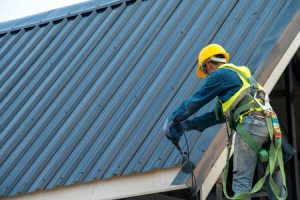
Metal roofs have been around for centuries, but they’ve varied in popularity over the years, especially in the United States. In today’s more environmentally conscious world, however, metal roofs are making a comeback.
Pros:
- They are made of up to 60% recycled material and can be completely recycled at the end of their life span, making them a great environmentally friendly option!
- Today, metal roofs can be manufactured to look like different textures, including wood and slate.
- Metal roofs are considered low maintenance and last for up to 50 years.
- Because of their durability and energy efficiency, your home insurance company might give you a discount on your premium if you have one installed!
Cons:
- Uninsulated or poorly insulated metal roofs can be extremely loud during rain storms, which does not make them ideal for rainy climates.
- Metal roofs tend to have a higher upfront cost than other options, such as an asphalt shingle roof.
PVC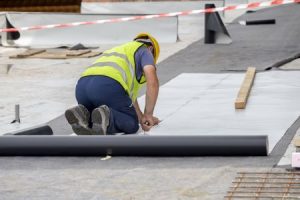
PVC stands for polyvinyl chloride, and it is a single-ply roofing material commonly used on flat or sloped commercial and industrial roofs.
Pros:
- Due to its strength and durability, PVC roofing will typically have a long service life of up to 20 years.
- Resistant to: Fire, Chemicals, Wind, and Water.
- Eco Friendly: It’s highly efficient with heating and cooling, reflects the sun, and mitigates the heat island effect in cities. PVC roofing is also recyclable, even after years of service!
Cons:
- Despite the benefits of PVC roofing, these features come at a higher cost.
- PVC does not do well in frigid environments. When it becomes too cold, PVC becomes brittle and can easily crack or shatter if walked on.
- When installing PVC, it must be appropriately installed on a clean, smooth surface. Extra debris can puncture the membrane and cause leaks down the road.
Tile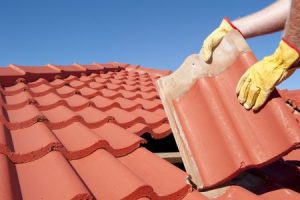
Tiled roofs are beautiful and durable. It’s an excellent choice for roofs that experience hot weather or exposure to salty air!
Pros:
- Long-Lasting: A tile roof can last more than 100 years, especially when installed in the right climate.
- Environmentally friendly: Tile roofs are made from earth minerals, not synthetic materials, and they can be pulverized and recycled when removed.
- Energy-efficient: The heavy thermal mass of tiles helps regulate indoor temperatures.
Cons:
- Costly: A clay tile roof system can cost two to three times as much as an asphalt roofing system.
- Heavyweight: Your roof structure must be able to handle the weight of a tile roof.
- Brittle: While durable, they can be broken if they suffer a heavy impact, such as from falling tree branches or even due to the pressure of walking on them.
Call Elite Construction and Roofing Today!
These are just a few of the many options you have to choose from when it comes to your new roof! Elite Construction & Roofing takes pride in ensuring the satisfaction of our customers. Our company has been in the construction and roofing industry for over 15 years. This, coupled with high-level customer reviews, proves that we are the roofing company for you! Call us if you have any questions about our materials, services or rates!

